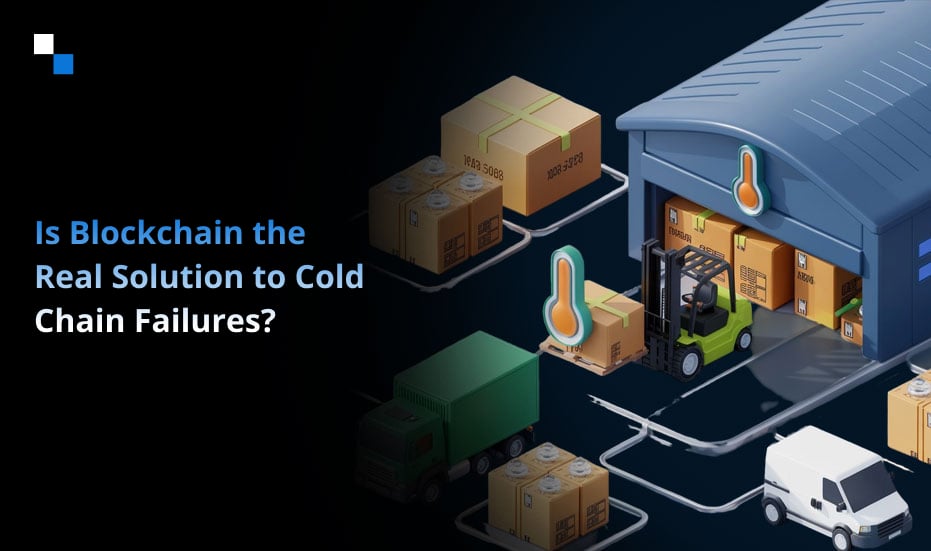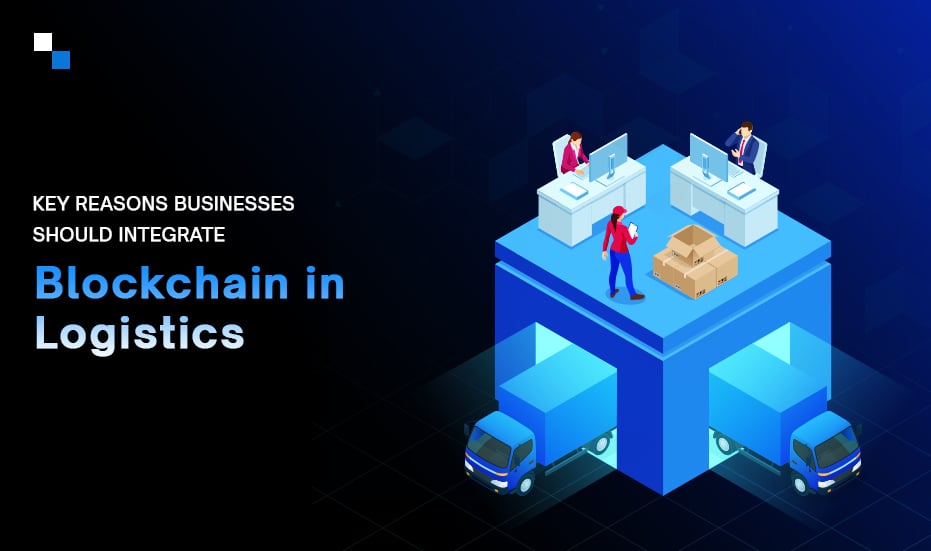
Why Invest in Crypto Wallets Tailored from Ground-Up
February 23, 2024
Navigating ICO Token Development in the Era of Green Blockchain
February 26, 2024The supply chain success often relies on the fulfillment of three objectives– customer satisfaction, profitability, and resiliency to disruptions. Companies invest millions of dollars to optimize their supply chain perfectly to achieve these objectives. Additionally, the growing emphasis on sustainability also leads companies to transform their traditional, energy-consuming supply chain model and make it environmentally friendly, adopting sustainable practices such as– sourcing raw materials from sustainable suppliers, ensuring fair wages for workers, and utilizing safe and eco-friendly options for production and transportation.
However, the cost of achieving these goals comes at a considerable cost. Not every organization’s budget aligns with the financial demands of achieving these objectives, which further forces them to make tradeoffs. A potential solution to this predicament lies in leveraging the powerful duo of Blockchain and IoT for supply chain management.
In this blog, we will focus on how the integration of emerging technologies like Blockchain and IoT for supply chain can unlock a new level of innovation and intelligence.
The Existing Challenges in the Supply Chain
1. Lack of Visibility: Limited transparency restricts the companies from getting an overview of their movement of goods, which further exposes them to fraud, code of conduct violations, and more.
2. Inventory Management: Inaccurate demand forecasts, supplier lead time variability, and unexpected demand spikes make it challenging to balance inventory levels while avoiding excess stock or stock-outs.
3. Cybersecurity Risks: As supply chain data is increasingly stored on a centralized database, the risk of cyberattacks on such critical infrastructure poses a significant threat to the security of the supply chain.
4. Regulatory Compliance: Adhering to diverse and evolving regulatory requirements across different regions is challenging, requiring companies to stay updated and ensure compliance to avoid legal issues and disruptions.
5. Sustainability and Environmental Concerns: The growing emphasis on sustainability leads companies to adopt environmentally friendly practices that add complexity to traditional supply chain operations.
6. Data Management and Integration: Integrating data from various sources is imperative to make informed decisions. Inconsistent data format & lack of interoperability between systems in traditional supply chain models can hinder this process.
The Strategic Advantages of Investing in Blockchain and IoT for Supply Chain
The following points shed light on how Blockchain and IoT for supply chain can help make the existing infrastructure more secure, efficient, and smart.
- Increased Transparency
Blockchain is a decentralized, immutable ledger that offers a transparent view of transactions across the supply chain. Each participant in the network can access the same information, ensuring transparency and trust between all stakeholders. The utilization of blockchain supply chain solutions is a wise approach to making the supply chain smarter and more efficient.
IoT devices such as RFID tags and sensors provide real-time information about the location, conditions, and status of goods in transit. The consistent flow of real-time information adds to the supply chain’s transparency and efficiency.
- Immutable Recordkeeping
The transactions recorded on blockchain supply chain solutions are secured through cryptography. They are cryptographically linked to the previous one, which creates an immutable chain of information. This immutability reduces the risk of fraud, ensures data integrity, and provides reliable information about the product journey.
IoT sensors have the capability to monitor various environmental conditions, such as temperature and humidity, during the transportation of goods. The data collected helps determine and maintain product quality. When this data is stored on a blockchain, it becomes immutable, offering a transparent history of the product’s conditions throughout the supply chain.
- Streamlined Traceability
Tracing the product origin and journey becomes convenient with the use of blockchain supply chain solutions. If any recall or quality issue arises, the stakeholder can trace the product journey and identify the affected batches easily.
IoT devices offer an ease of real-time tracking of products that helps identify potential bottlenecks or delays in the supply chain. This data, when combined with blockchain’s traceability features, enables stakeholders to pinpoint issues promptly and take timely corrective actions.

- Smart Contracts for Automation
Smart contracts are self-executing contracts in which the terms of the agreement are directly written into code. These codes can automate various processes within the supply chain. These digital contracts on blockchain supply chain solutions automatically execute the actions when predefined conditions are met, such as payment upon delivery or the initiation of a quality check.
IoT devices can trigger events based on real-time data, such as sending alerts if a temperature threshold is breached. When blockchain and IoT for supply chain come together, these triggers can automate responses that help make informed decisions faster and reduce the need for manual intervention.
- Improved Security and Trust
The decentralized and cryptographic nature of blockchain adds value to data security and authenticity. This, coupled with consensus mechanisms, reduces the risk of fraud and unauthorized access to a great extent.
Secure communication protocols and encryption mechanisms in IoT devices safeguard the integrity of the data they generate. Combining blockchain and IoT for supply chain will help establish a highly secure and trustworthy environment for supply chain transactions and information exchange.
Top Use Cases of Blockchain & IoT in Supply Chain
- Tracking
As supply chain networks become increasingly complex, the task of tracing items across the network becomes more challenging. By leveraging blockchain and IoT for supply chain, businesses can seamlessly track the product journey, product provenance, and change of ownership.
- Contract Performance
With IoT-generated shipping and product quality data, businesses can establish predefined KPIs for supply chain partners. This allows businesses to measure and manage their resources, provide feedback, and incentivize better performance. Organizations can use smart contracts to automate payments based on performance.
- Quality Certification
Manufacturing machines powered by the Internet of Things (IoT) can effortlessly generate data regarding product quality. This information enables manufacturers to improve their product quality and facilitates the automation of verification and certification processes. Blockchain enables manufacturers to seamlessly share these product quality metrics with stakeholders in the supply chain network, ensuring trust in the certification processes.
- Settlement automation
Blockchain encourages peer-to-peer payment for goods and services, eliminating the need for intermediaries such as banks or brokers. Blockchain and IoT for supply chains have emerged as a game-changer as they can reduce longer processing times and high-cost clearinghouse processes. The near-real-time settlement also reduces the currency exchange risks.
- Digital Paper
Traditional supply chain models frequently encountered shipping complications linked to paperwork, including manual errors and falsified information. The integration of IoT-generated shipping data with blockchain digitizes paperwork, streamlining operations through automated validation and verification mechanisms.
Conclusion
The supply chain will undoubtedly face major challenges today and tomorrow. Issues such as a lack of transparency and traceability are critical points that lead businesses to experiment with emerging technologies like Blockchain and IoT. Presently, numerous leading companies in the marketplace have recognized the power of these Web3 technologies and have implemented them into their supply chains to achieve maximum transparency, security, and efficiency.
Utilizing blockchain and IoT for supply chain is undoubtedly a wise approach, as it redefines the way different actors in the supply chain share, communicate, and access information on a secure platform. To become a part of this transformative journey brought about by Blockchain and IoT, partner with a reliable company for assistance. Antier is a leading blockchain supply chain solutions service provider that can bridge the gaps your supply chain might be experiencing. Reach out to Antier’s professional team to get started with your blockchain supply chain project.



